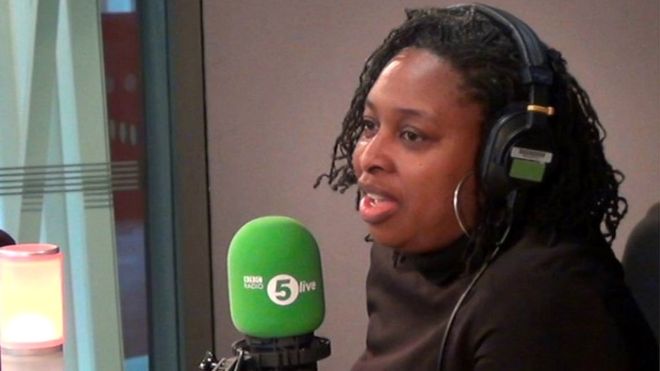
Britain’s third black female Member of Parliament, Dawn Butler, the daughter of two Jamaican immigrants, has told of the racism she has faced during her Parliamentary career in a recent interview on BBC Five Live’s Piennar’s Politics. Her recounts of discriminatory attitudes within Parliament come as no revelation; they simply exemplify the old boy’s club exclusivity that characterises British politics.
An incident in which an unnamed MP assumed Butler was a cleaner, and told her she shouldn’t be using the Member’s lift, is a reminder of the intersection of racial and gendered oppression where black women find themselves repeatedly. The assumption that a black woman would only be in the House of Commons as a cleaner reflects a racist attitude that finds blackness synonymous with positions of service, and whiteness synonymous with power.
Dressed to attend Parliament, there would be nothing to suggest Butler was a cleaner or any less entitled to use of the Member’s lift besides her skin colour and that she was a woman. What lies beneath the assumption of Butler’s social standing and place within the HoC based on her racial identity is an effort to demean and humiliate her, and undermines the legitimacy of her political work.
Such instances of bigotry confirm that the presence of MP’s who represent minorities in Parliament is crucial. As part of the 6% black minority in Parliament, and one of the 191 females out of 650 MP’s, Butler finds herself as both a gendered and a racialised minority, subject to sexist and racist discrimination in a predominantly white space. Under the Tory’s, 32 women’s refuges have been closed and other slashes are being made to organisations that are vital in supporting marginalised communities. National spending reflects the priorities of those who are making the decisions and Britain’s BME citizens, who make up 14 per cent of the population at large, are being grossly underrepresented.
In an article written in 2008, Butler gave another example where she was questioned by former senior Tory minister David Heathcoate-Amory on her right to be in the Member’s area of the terrace at the House of Commons. Butler’s brilliant response was to turn the question around on Heathcoate-Amory and interrogate his position as an MP, as he had done to her.
In doing so, she highlighted the blatancy of his racism, to which he turned his back and said to other colleagues who were present “they’re letting anyone anybody in nowadays”. Again, the assumption that she shouldn’t be there demonstrates the white uniformity of British political institutions and his choice of words reifies Parliament as an exclusive space in which Butler had to be ‘let’ into. Again, dismissing Butler’s own agency in her career and her validity as a Member of Parliament in her own right.
Heathcoate-Amory rubbished Butler’s accusation of racism by claiming he questioned her simply because he didn’t recognise her as a new MP, stating “they are quite sensitive about this kind of thing, they think that any kind of reprimand from anyone is racially motivated.” His defensive response screams entitlement and the suggestion that they [read: black people] are over sensitive to racism is textbook white denialism and blindness to the salience of claims to oppression.
These two anecdotes of Butler’s have only surfaced because of her speaking out and are in fact not isolated cases, what they demonstrate is white male entitlement to space and authority. Butler’s treatment by white male MP’s reflects a broader neo-colonial ideology, which claims space and power by subordination.

Britain’s policing was built on racism. Abolition is unavoidable

Against the binary: imagining a future of holding my chest high

How Pakistan’s Khwaja Sira and transgender communities are fearing and fighting for their futures





